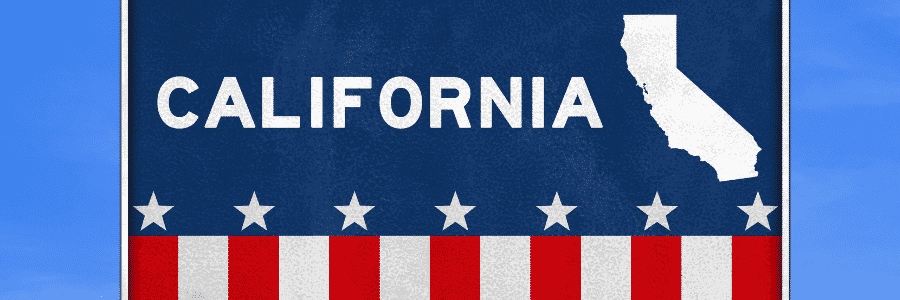Opinion: California Sports Betting Legislation Isn’t Passing Anytime Soon

With the Supreme Court making PASPA a thing of the past back in 2018, many states were quick to jump at the chance to legalize gambling on sports. Perhaps more importantly, they were quick to take advantage of a way to raise some much-needed revenue for their respective state coffers.
However, while there were several that were quick to jump at the chance, most were a lot like the state of California. They began to think about it.
But surely a state the size of California is going to have enough people interested in legalized sports gambling to get some sort of legislation passed relatively soon, right?
After all, California is a state with 19 professional sports (NFL, NBA MLB, NHL, and MLS). That means there are a ton of options, unlike most states, and that isn’t taking things like golf and NASCAR into consideration. There is no doubt the California sports betting market is teeming with unmet demand.
However, despite being home to some of the largest markets in the country for sports, it is unclear when (or if) betting on sports is going to become legal in the state of California.
What’s Holding Up California Sports Betting Legalization Efforts
For California to legalize sports gambling, voters have to approve a ballot proposition first. Once an initiative is approved to be on the ballot and is approved by a majority of voters, the legislature then gets to work on whatever regulations are deemed necessary.
So, first, an initiative has yet to make it to the ballot— and it doesn’t look like one is going to make it onto the ballot this year. Last summer, a political consultant by the name of Russell Lowery proposed one and filed the necessary paperwork with the state.
Lowery needed to collect over 620,000 signatures for to make the ballot, but he didn’t get a single one. Apparently, he never even intended on trying to collect the need signatures.
By law, if a law is passed via a ballot initiative, legislators in California can’t make broad, impactful changes to the law. Lowery has admitted that he intended on trying to get the signatures at first but was told after he filed the paperwork with the state by his backers that they still hoped for a legislative solution.
They hoped that legislatures would choose to control the process and the content of the law by passing something themselves. But it has yet to happen. Instead, California is one of a handful of states to not have something on the books or even under consideration this year.
Why Aren’t California Tribes Lobbying For Sports Betting
Logically speaking, it would make sense for the state to get something done so that it can start collecting the estimated $100 million in revenue legalized sports gambling would generate. While that is certainly a lot of money, we should keep in mind the state’s annual budget is somewhere in the realm of $180 billion.
An extra $100 million barely qualifies as a drop in the bucket.
That doesn’t mean the extra revenue would not come in handy; just that it isn’t seen as worth the fight because it would require significant negotiations with the tribal governments to get legislation passed.
Yes, the tribes are that powerful.
The Indian Gaming Regulatory Act of 1988 () opened the door for Indian tribes to get into the casino business. Under the IGRA, each state must negotiate with local tribes to reach deals that address jurisdictional issues such as regulation and what forms of gambling may be offered by tribal groups and state-sanctioned casinos.
Since then, 74 tribes have signed compacts with the state of California. But as of May 19, 2019, 62 tribes are operating 64 casinos in California.
These casinos generate a ton of money for the tribes. Back in 2016, when 63 tribes ran 73 casinos, they generated . It stands to reason that the tribes want to protect that revenue. They are already at odds with the 87 cardrooms in the state and race tracks.
The tribes would love to see the additional revenue that would come with legalized sports betting, but they don’t want to share. They would rather not face more competition even though the pie they would all be fighting over would be exponentially larger.
“We feel like protecting the industry in California is more important,” Steve Stallings, the California Nations Indian Gaming Association chairman, told the back in March.
Tribal Control Of California Sports Betting Industry is a Big Deal
With around $8 billion in revenue a year from their existing casinos, the tribes can afford to fight any initiative that may be proposed until they win (and defeat it). Many have wondered why they oppose it. Yes, they would no longer have a monopoly on gambling. But their piece of the pie would likely be much bigger than what they currently make.
Don’t they want more money?
The obvious answer is yes, of course. But generating more revenue doesn’t necessarily mean banking more revenue.
If the tribes were to get behind legislation, they would be required to renegotiate their current deals with the state. That would open the door for the state to insist on concessions the tribes would rather not give.
Why open that door if you don’t have to?
No Sense of Urgency
In the end, the tribes are not interested in legalized sports gambling since it could impact their current gambling revenue. The state is not concerned since it will not generate a significant amount of revenue compared to the state’s massive budget.
The people are not too concerned about it since they can just hop over to Las Vegas or use an offshore sportsbook if they really want to lay some money down.
If it doesn’t impact enough people, there just isn’t going to be any sense of urgency when it comes to sports betting legislation.
Tania brings over 10 years of experience as a gambling industry reporter to ycgts.shop, providing frequent news coverage and coverage of current events.





